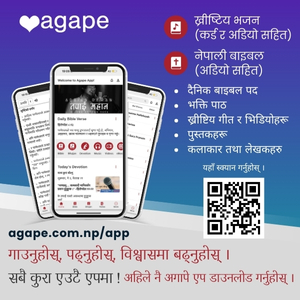Introduction

The biblical mandate for the church is to look after poor, vulnerable, sick, and marginalized to speak for justice, and serve people with words and deeds. People with disabilities are among the most disadvantaged, marginalized and poor in Nepali communities. They are the ones disregarded by the people and even by churches.
Nepali culture explicitly and implicitly passes on the teaching that people with disabilities are cursed by the gods. Disability is seen as a direct result of individual sin. So people do not love and respect people with disabilities. They are never regarded as equal to other people. The same world view seems to be influencing the church, therefore very few churches have ministry focused on people with disabilities.
Is it not the local churches whose mandate is to look after the poor, speak for marginalized. Churches need to develop their skill to take care for people with disabilities in order to fulfill biblical mandate.
Problems / Issues to be addressed
The total population of PWDs makes up 1.94% of the total population of the country according to the Central Bureau Statistics of Nepal but WHO estimates between 10-15% and among these about 2-3% have severe disabilities. The community of PWDs has still been marginalized due to the lack of awareness and ingrained cultural prejudice. Though the government ratified UN Convention on the Rights of Persons with Disabilities (UNCRPD), there is still gap in the implementation of the laws and policies regarding human rights of PWDs. I carried out a survey among local churches in Gorkha and Pokhara, and conducted several workshops on disability among the leaders of these churches as part of my work in INF Nepal. Following are the major problems identified through this survey and workshops:
- The prevailing world views on disability
One of the root causes of the problem is the world views of people on disability. Most of the church going people in Nepal are either from a Hindu or Buddhist cultural background, which considers disability as result of their own sins or his/her parents committed in a previous life. Few christians have had teaching on a biblical perspective on disability and so their mentality regarding disability is still not fully free of this hindu or buddhist world view. Even among the church leaders, very few are aware of what the bible says about disability and so are unable to pass it on to their congregation.
- Lack of ministry specifically for People with disability
An interesting thing observed during the survey was that though most of the churches have started working among elderly people, children, or orphans, none of the churches visited were found to have a vision to work with PWDs, even though they have some members with a disability in their church
- Infrastructure bariers
Most of the Church buildings are not disable friendly. The church buildings are not built in a way that is easily an accesible for PWDs, and therefore disabled members are excluded from the church services. Churches who build their own buildings often build the worship hall on the top level. The entrance and toilets in churches are also not disable friendly. Those churches who rent the rooms also often rent the upper storey which makes it hard for the PWDs to attend the church service. This also seems that church members have less knowledge on disable people accessibility, roles and importance in the church as a member of the community.
- Particpating in ministry
Very few churches give the opportunity for those with disabilities to use their gifts and skills to contribute to the building up of the churches. Of the churches surveyed only 3 have any people with disabilities involved in ministry. Participation of PWDs in the church is very less as compared to the normal people.
- Language barier
Nepali language has been evolving and changing by now. Language that was once widly used, is now seen in the society as insulting or abusive. For example, people should no longer use the word “Andha” for blind people in Nepal. The word is attached to stigma and disrepect. But churches are still unaware of the change in language and for many years Nepali bible translations have not been updated. So churches continue to use these disrespectful words for the people with disabilities. The ignorance has created a gap between church and people with disabilities.
Recomendation
To address these issues churches should learn and teach biblical perspective on disability (theology of disability) to the congregationto bring changes in the world view and mindset of people. Using the bible as a foundation church should seek to help people understand that, like in the ministry of Jesus, those with disabilities should be reached out to, respected and included in the church.






















Discussion about this post